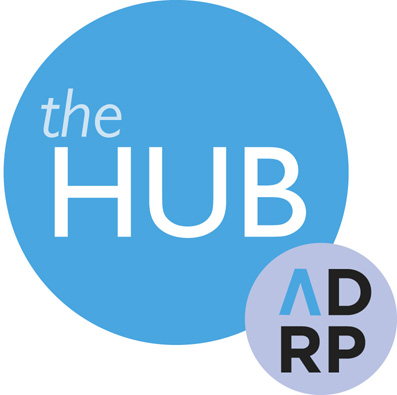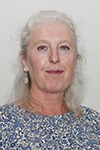 September 2018 Member Spotlight September 2018 Member Spotlight

Name: Anna Brandenburger
Institution: The London School of Economics and Political Science (LSE)
Position: Donor Relations Coordinator
ADRP Member for 1 year
How long have you worked in donor relations/stewardship and how did you get involved in this profession?
I’ve worked in nonprofits for about five years. This followed a career change started by graduating with a law degree as a mature student. Prior to LSE, I was at a small legal research charity, where donor relations only made up a minor part of my role. Over my two years there, I realised this was the area I enjoyed most and where I could make the biggest impact, so I decided to join LSE Advancement.
Could you tell us something about the organization you work for?
The London School of Economics and Political Science was founded in 1895 “for the betterment of society” and it has become one of the most prestigious social science universities in the world. It is this idea of working for the public good, which drew me to the organization – and which I feel still holds true in almost all the work we do. The School is home to about 5,000 undergraduate and nearly 6,000 postgraduate students. About 60% of the students come from overseas, making the campus a wonderfully diverse environment. In my team, we work with individual and corporate donors and are always seeking ways for them to engage with the School, so we can demonstrate the impact of their support.
What do you like most about being a member of ADRP?
Since joining the ADRP last year, I’ve really made the most of the webinars on offer, giving a great insight into best practice among colleagues. They are a great way to hear from those working in similar fields, but with an international outlook. Because my team here is small and relatively new to the field, being able to ask questions and share ideas with others is extremely valuable to us and shows how we can all improve the impact of our work. However great it is being a part of organisations like ADRP, as a professional in the UK, it’s very hard to really get the most benefit from my membership, because it’s not viable to travel to the US to participate in all the conferences and meetings that are provided.
What is your greatest donor relations/stewardship achievement?
One of our annual events brings our scholarship donors and recipients together for a drinks reception. The highlight of the evening involves speeches from key donors and scholars. I work with the scholar speakers to encourage them to show what a life-changing impact these scholarships make on talented students and the results are extremely moving accounts of their journeys to LSE. This past year, our donor speaker had been a scholarship recipient at LSE himself and was able to demonstrate the motivation for setting up his scholarship and passing the benefits forward.
What is the most important professional goal you are currently pursuing, i.e., attaining a degree, preparing to give a presentation, launching an initiative at work or in your community, etc.?
I am starting a programme of Scholarship Ambassadors at LSE. These scholars will engage with donors, as well as the rest of the School and new scholarship recipients, to promote our undergraduate and postgraduate scholarship programmes. We plan to provide training and preparation skills, so they can communicate effectively with key donors, while networking for their own benefit. I think our students are one of the biggest assets to our work in Advancement and we need to demonstrate this.
How big a role does the use of social media play in your work?
The work of our Advancement team is very much tied in with social media in terms of communicating with alumni, donors and students. We have a huge number of international students, so being able to communicate with them through social media makes everything much more immediate. Keeping up with this is a continual challenge, but has great benefits to all involved.
Is there a resource, i.e., book, blog, website, etc., that you would recommend to other ADRP members?
The CASE library of resources and tools contains some great examples for donor engagements and stewardship for other schools and universities. CASE also provides great webinars, which really help with examples of best practice. For inspiration, I have found that listening to Lynne Wester, the Donor Relations Guru, is so helpful in providing motivation and clever insights into making effective changes.
What is the best piece of professional advice you have ever received?
Exciting and motivating donors and prospects about the work of one’s organisation and giving them the appropriate opportunities to engage with its work means you may never actually need to ask for funding because the value of what they can offer will be clearly evident. Additionally, thanking donors without asking for funding is the best form of stewardship.
Are there any particular stories, insights, etc., from your experiences in donor relations and stewardship that you would like to share with our colleagues?
Recently, I was able to tell the son of a legacy donor, who is an LSE alumnus, that the scholarship being funded by his father’s bequest is currently supporting a student whose own grandfather had intended to study at LSE at the same time as the donor studied here in the 1950s. Unfortunately, he couldn’t take up his place at LSE, because he had to contribute to the family income. This made a huge impact on the son and has re-engaged him with the School.

Back to the September 2018 Hub
|